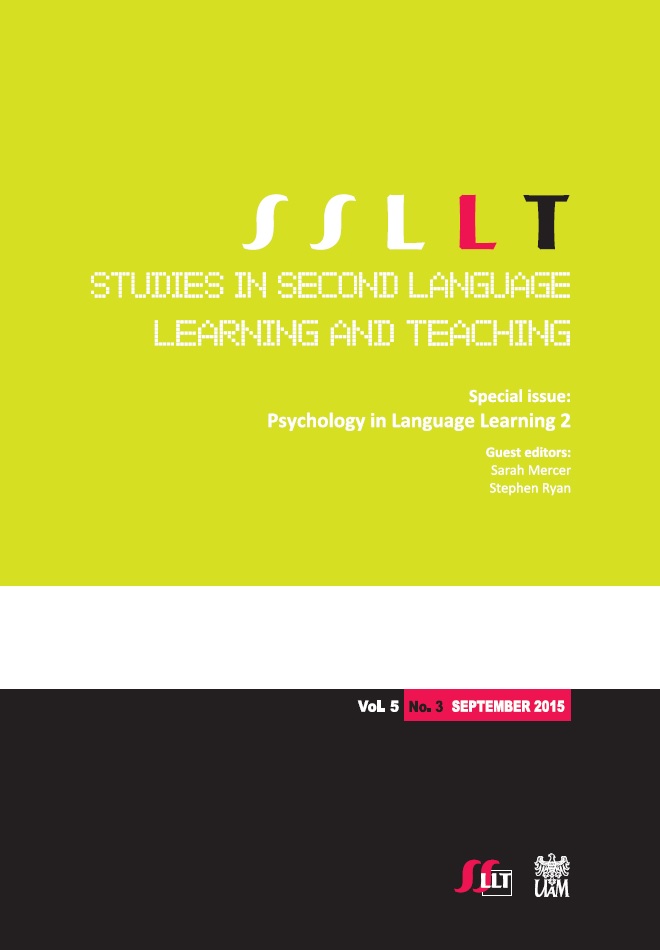Emotion as the amplifier and the primary motive: Some theories of emotion with relevance to language learning
Emotion as the amplifier and the primary motive: Some theories of emotion with relevance to language learning
Author(s): Rebecca OxfordSubject(s): Language and Literature Studies
Published by: Wojskowe Biuro Historyczne im. gen. broni Kazimierza Sosnkowskiego
Keywords: language learning; positive psychological, social, and existential theories of emotion
Summary/Abstract: Emotion is crucial to living and learning. The powerful intertwining of emotion and cognition ignites learning within a complex dynamic system, which, as several sections of this paper show, also includes societal and cultural influences.As “the primary human motive” (MacIntyre, 2002a, p. 61), emotion operates as an amplifier, which provides energetic intensity to all human behavior, including language learning. This chapter explains major theories of emotion drawn from positive psychology, social psychology, social constructivism, social constructionism,and existential psychotherapy. It also offers implications for language learning related to understanding and managing emotions; expressing emotions appropriately despite cultural and linguistic differences; viewing emotions as transitory social roles; enhancing positive emotions and developing resilience; and recognizing, perhaps paradoxically, both the negative and the positive aspects of anxiety. The chapter concludes with the statement that language learners can become more agentic in dealing with their emotions. This form of self-regulation can lead to greater success in language learning.
Journal: Studies in Second Language Learning and Teaching
- Issue Year: V/2015
- Issue No: 3
- Page Range: 371-393
- Page Count: 23
- Language: English

